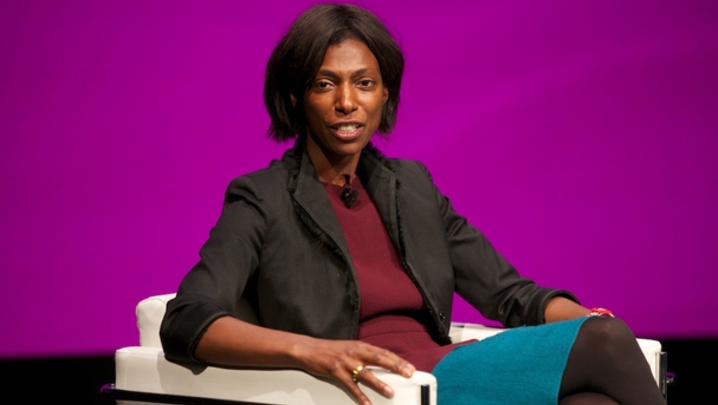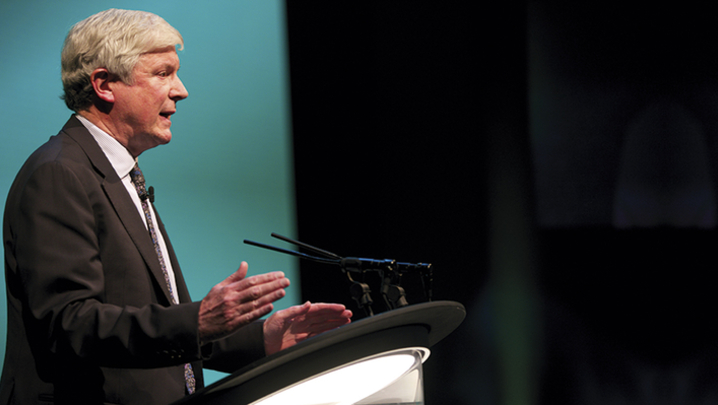It isn’t only John Whittingdale’s passion for heavy metal that confounds his stereotype as an old fogey. Anne McElvoy profiles a political enigma
John Whittingdale is a conundrum. A politician who can seem old beyond his 55 years, he has been in Parliament since 1992, nine years longer than David Cameron. And, although only a few years older than his boss, Whittingdale’s style and political heritage are soundly late-Thatcher era, with a voting record that is pro-fox hunting and anti-gay marriage.
Yet, the freshly minted Secretary of State for Culture, Media and Sport also confounds stereotypes of the shire fogey with a mild interest in Gilbert and Sullivan.
The man who headed the Culture, Media and Sport Committee for nearly 10 years from 2005 relishes heavy metal in the form of an extensive collection of AC/DC and Deep Purple.
One of his first trips out in his enhanced brief was to the Camden Roundhouse, north London, to see what remains of the line-up of the chirpy punk band Sham 69.
"Whitters," says one senior member of Team Cameron, "is a lot more fun than he looks and the bloke likely to linger after dinner, suggesting you play some old 45s."
Whether his new job, in the anxious period leading up to the renewal and revamp of the BBC Charter, will produce such jollity is doubtful.
Whittingdale has been an outspoken critic of the licence fee as "worse than the poll tax" in terms of its regressive impact on low earners, and "getting harder and harder to justify". The BBC, meanwhile, has stuck to its strategy of defending its funding mechanism (at least for the short term) and attempted to stave off talk of a partial subscription service.
The Culture Secretary’s stance has spooked BBC executives. Many of them think a Conservative Government, emboldened by an overall majority, is out to dismantle the public broadcaster in its licence fee-funded form.
"Whitters is a lot more fun than he looks"
Another school of thought is that Cameron’s choice of an unflashy sort with a good knowledge of the archaeology of the BBC to head the licence-fee talks is intended to startle, rather than affront.
This is reflected in the pragmatic way Cameron has approached the subject (barring the odd, testy election outburst and carefully barbed joke about alleged bias).
The sharp intake of breath caused by Whittingdale’s appointment helped Downing Street put pressure on the corporation’s negotiators to content themselves with a licence fee-freeze and a commitment to widen commissioning opportunities to external bidders.
In fact, when the new licence-fee settlement was announced in a surprise move by Whittingdale on 6 July, the BBC’s Director-General, Tony Hall, described it as a "strong deal" for the BBC. It could even see the corporation’s income rise over the next five years, suggested Hall.
The five-year deal, pegged to CPI, involves the BBC having to cover the cost of licences for the over-75s, phased in from 2018-19 at a cost of £650m that year. At the same time, the BBC’s commitment to fund rural broadband will be reduced.
Whittingdale comes with a CV that reflects his support for the right of his party. He has advised three trade and industry secretaries, done a stint in the commercial sector (specialising in big privatisations) and was Political Secretary and a close friend to Margaret Thatcher in her turbulent final period as Prime Minister – working for her even after her ejection from Number 10.
Certainly, the new boy has laid down early markers on his instincts, suggesting that the corporation needs to think again about how rigorous and effective its impartiality commitments are and how they should be monitored.
His first target is the BBC Trust, which he deems past its sell-by date. That opens the way to governance by Ofcom, the media regulator, including on sensitive editorial matters – a solution that Director-General Tony Hall and strategy chief James Purnell have sounded unenthusiastic about.
Perhaps the real point of the Whittingdale era will be to open up a wider policy debate about public-sector broadcasting and the arts in general – and where they fit in a modern Conservative vision.
Both Cameron and Osborne are irked by a narrative that regards the arts (and the BBC) as the natural preserve of Guardian-reading lefties.
Rohan Silva, an arts entrepreneur and former aide to David Cameron, thinks that Whittingdale’s role may end up being "about much more than the licence fee".
Silva reckons that the Chancellor’s "northern powerhouse" plans and the idea of creating a new London concert hall (overseen by Sir Simon Rattle) "are intended to show that the Government has a concept and approach to urban culture nationally, as well as to the economy".
When his Culture, Media and Sport Committee conducted an inquiry into Arts Council England last year, Whittingdale decried the "imbalance in favour of London at the expense of taxpayers and lottery players around the country".
"He is a good choice. He’s really well-informed, he knows people… around the country"
In a shot across the bows of Arts Council England and its Chair, Sir Peter Bazalgette, he announced that the committee should regularly review arts funding decisions – with a clear preference for moving investment in the arts outside the capital.
Diane Coyle, the former Vice-Chair of the BBC Trust, thinks that, "despite the headlines, [Whittingdale] is a good choice. He’s really well-informed, knows people in the independent sector and around the country."
But broadening out a limited appeal beyond the Conservative right will take work on his part. Slipped Disc, a classical music website, described him as a "dry stick". One subscriber commented that he wore the facial expression of "someone who had just left a Stockhausen performance".
Although generally viewed as close to the centre-right media, he can be firm with allies as well as foes. He brusquely summoned both James and Rupert Murdoch to give evidence about the phone-hacking scandal at his select committee – and made clear he would take a dim view of any excuses for not attending. They duly came.
If his Cabinet appointment looked like an inevitability, it did not seem like that to him. He says he was "amazed" when the call came from the PM and his "jaw hit the floor"; he had expected "a place on the lower rungs of government".
If relations with the BBC squirearchy are superficially cordial, disagreements lurk not far below the surface. The usually emollient Hall used uncommonly strong language recently about the looming decision on the BBC’s future. "This [broadcast] ecology works," he told Broadcast magazine. "Don’t screw around with it."
The new owner of the culture and media portfolio is far less convinced that the ecology works – or that it can withstand the forces of disaggregation and choice buffeting today’s media.
One straw in the wind is a major study under way by the Centre for Policy Studies, the more right-leaning of the main Tory think tanks, on alternatives to the BBC licence fee.
"That," says a Number 10 insider, "will most likely reflect John’s instincts that the BBC needs to change quite profoundly – his Freudian id, if you like." But political life is about calculation, as well as instinct. The true dilemma of a second-term Conservative Government lies in its tension between an appetite for radical change and conserving British institutions.
The "dry stick" is at the forefront of one of the most intriguing and farreaching choices the new Government will make.
Anne McElvoy is Public Policy and Education Editor at The Economist.




